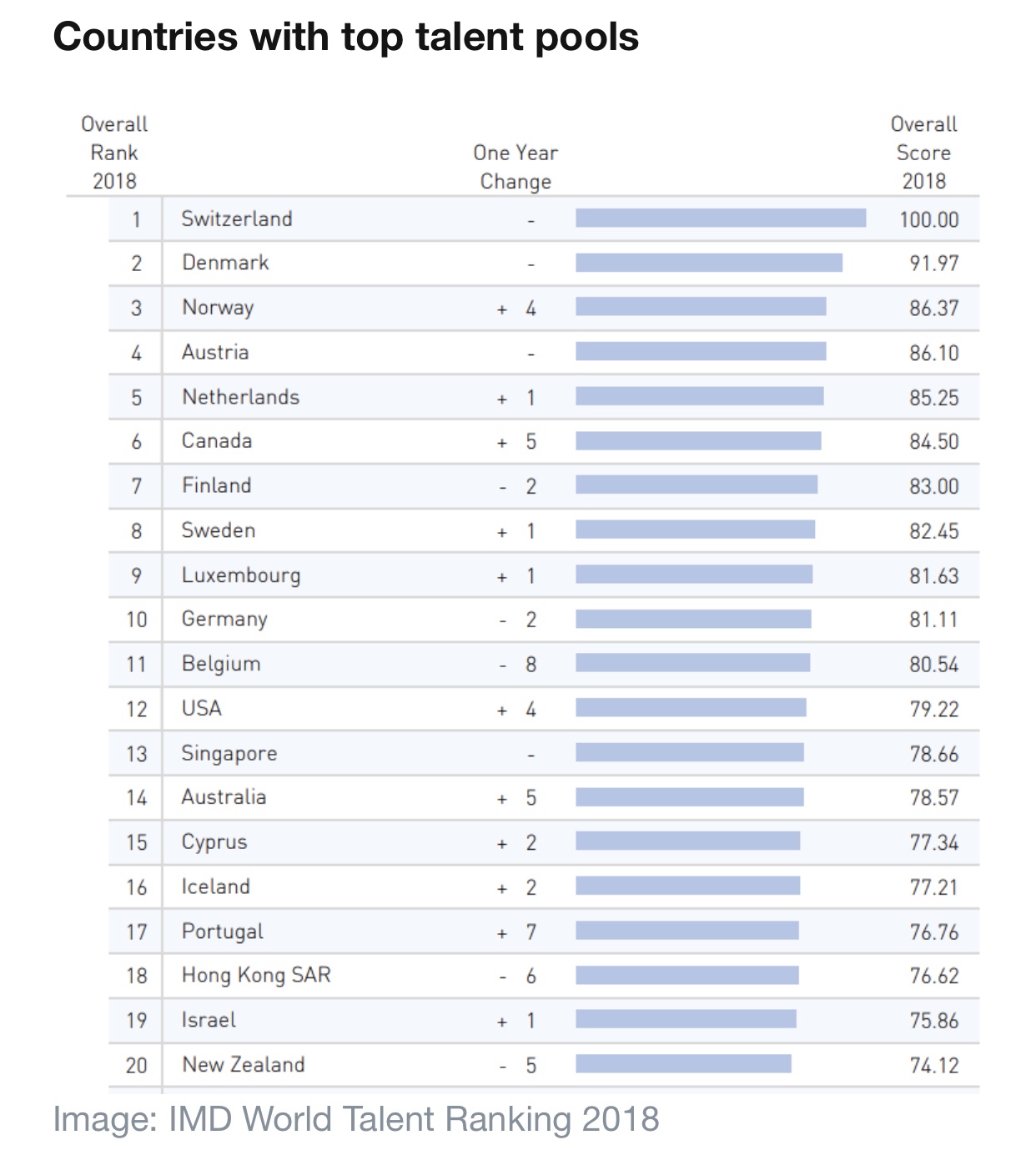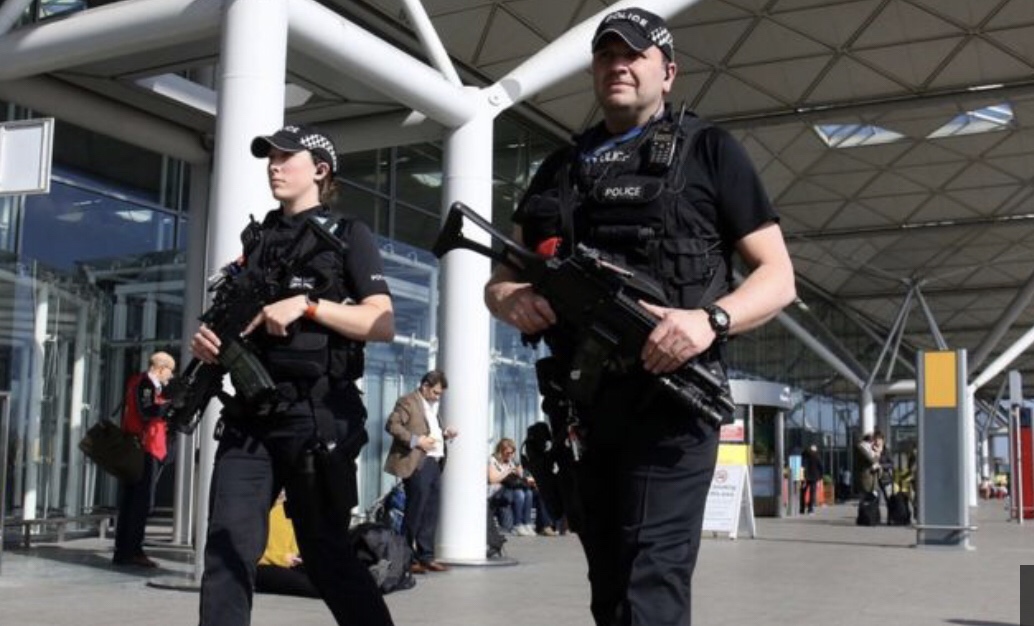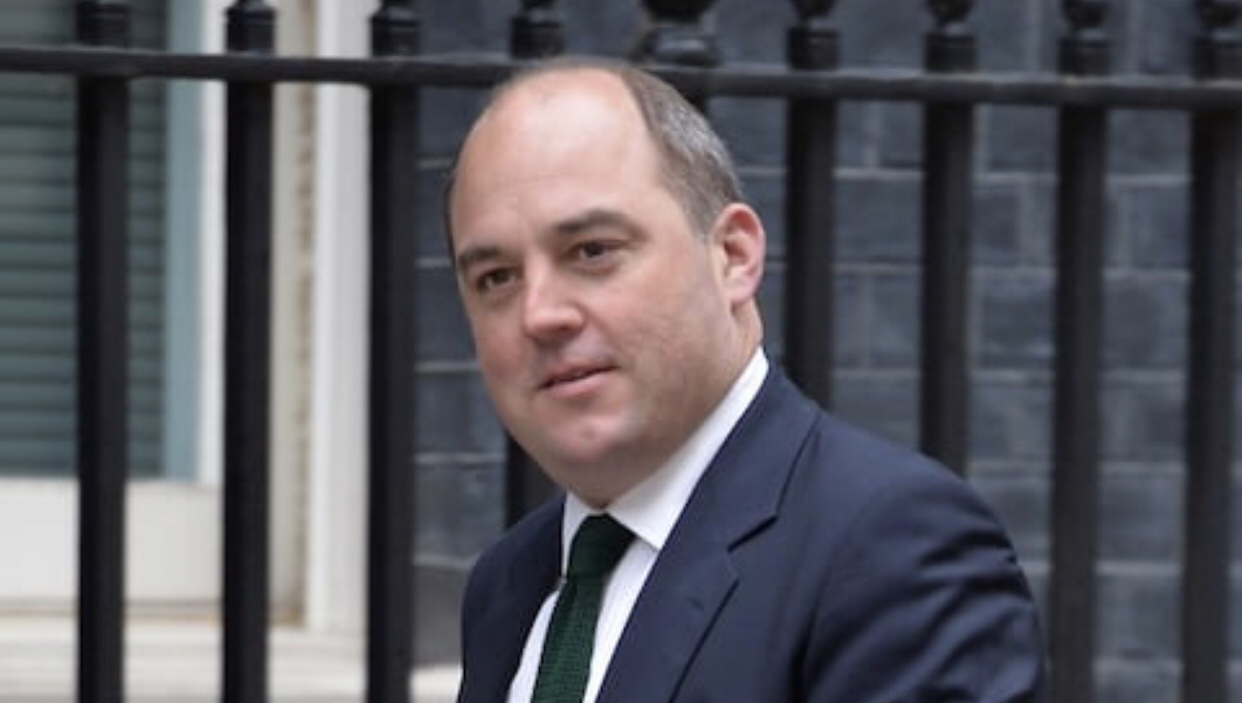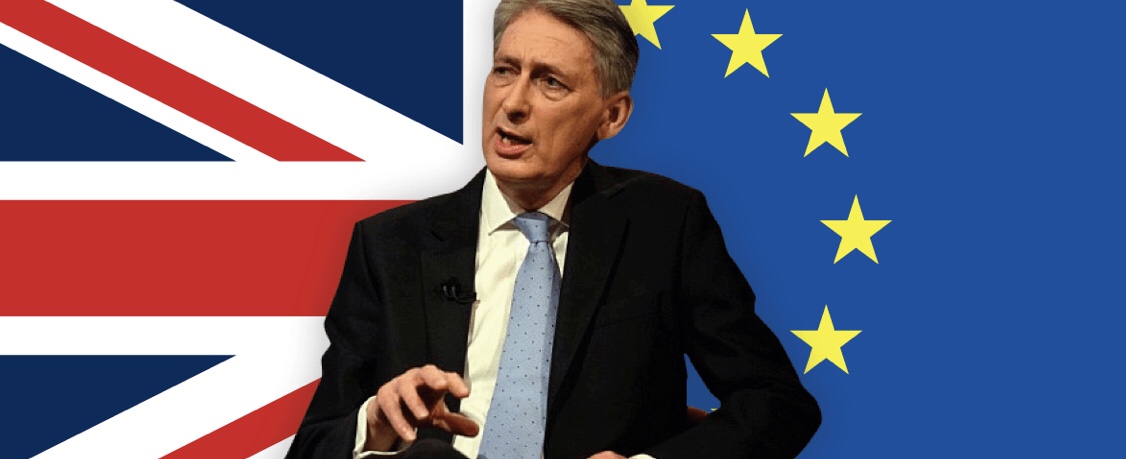Western Europe is the leading hub for the world’s talent, outperforming other regions in attracting, developing and retaining highly skilled employees.
This is according to the recently released IMD World Talent Ranking 2018 in which Western European nations fill nine of the top 10 places.
The annual survey from the IMD business school – which has campuses in Switzerland and Singapore – assesses the performance of 63 economies across three key categories: 1) Investment and Development, 2) Appeal and 3) Readiness. Their place in the ranking is determined by success in different talent-related areas such as education, training, apprenticeships, language skills, quality of life, remuneration and tax rates.

Switzerland tops the table, as it has done in each of the previous four editions. Despite the country’s high living costs, Switzerland comes first in two of the three key categories – Appeal and Readiness – and fourth in Investment and Development.
Nordic countries occupy the other two places on the global talent podium, with Denmark in second and Norway in third, climbing four places from the previous year. The “readiness” of Norway’s talent pool, together with improvements in public spending on education, has fuelled this year’s rise.
Finland and Sweden are in seventh and eighth place, while Iceland, in 16th, is the only Nordic nation outside of the top 10.
Eastern European countries fared less well with Estonia leading the charge in 28th position, followed by Slovakia and Latvia. Other Eastern European nations occupied the lower half of the table.
Canada is the only non-European nation to make the top 10, surging five places to reach sixth position due to improvements in the quality of its talent pool. Across the border, the US improved in all three categories to climb four places to 12th.
Source; WEF
A no-deal Brexit deal would hit UK-EU security ties and have a “real impact” on protecting the public, Security Minister Ben Wallace is to warn.
In a speech to law enforcement leaders, he will say the “heart of effective security is close co-operation”.
Mr Wallace will say Theresa May’s deal, which MPs vote on next month, sets the foundations for the most comprehensive security relationship in EU history.

But Labour’s Diane Abbott said the plan “fails on guarantees for security”.
The shadow home secretary’s party is to table an amendment to reject the deal, but also “prevent the chaos of the UK crashing out of the EU”.
The UK is due to leave the EU on 29 March 2019 but under Mrs May’s deal the UK and EU would continue to work together as they do now during the transition period, which is due to run until 31 December 2020.
The deal for how the UK will leave EU is accompanied by a non-binding declaration on the future relationship between the EU and UK and the plans for co-operation on security after the transition period are set out in this document.
MPs are due to vote on the deal on 11 December. If they reject it – and no other solution is found – the UK could leave without a deal and current arrangements on security co-operation would end on 29 March with nothing to replace them.

Mr Wallace is due to speak at the International Security Expo in London, where he will say a no-deal departure would be a step backwards for security co-operation.
He will say the UK, through the experience of the last few decades, has learnt the value of working with its European partners.
“And we and Europe know, from bitter experience, that often when there is a mistake or when something has been missed that we find, time and time again, that it has been due to a failure of co-operation.
“A no-deal situation would have a real impact on our ability to work with our European partners to protect the public.”
Source: BBC
Theresa May is facing accusations of “rehashing Project Fear” after it emerged that Treasury forecasts show that Britain will be £150bn worse off under a no-deal Brexit.

A cross-Government analysis is expected to show that under the Chequers agreement, which forms the basis of her deal, the UK’s GDP will be between 1 and 2 per cent lower over 15 years than if it had stayed in the EU.
Dominic Raab, the former Brexit Secretary, said: “There is an economic credibility gap with all these Treasury-led forecasts, based on their track record of failure, the questionable assumptions they rely on, and the inherent challenge of making reliable long-term forecasts. Politically, it looks like a rehash of Project Fear. People expect to be inspired, not scared witless into deferring to the government. Whenever Whitehall make forecasts for leaving the EU on WTO terms, it’s always the same. They rely on the most pessimistic assumptions, and airbrush out the opportunities of leaving with full regulatory control and the ability to strike free trade deals around the world.”
“Remaining in the EU would be a better outcome for the economy, but not by much” – Chancellor Philip Hammond says “Theresa May’s Brexit deal “is very close” to the economic benefits of being in the EU”.






You must be logged in to post a comment.